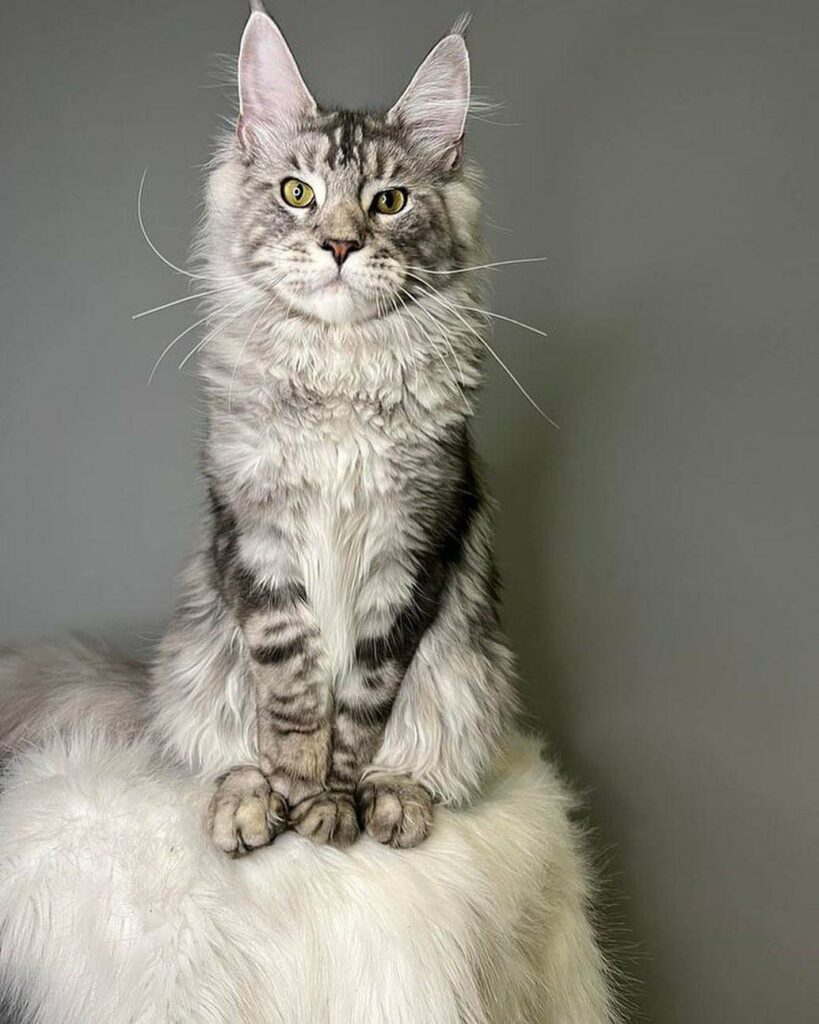Feeding a Maine Coon cat isn’t just about choosing premium kibble or indulging their appetite it’s about understanding the breed’s distinct physiology and nutritional needs. These gentle giants, known for their muscular build and slow maturation, require a diet that supports sustained growth, joint health, and metabolic balance. Unlike smaller breeds, Maine Coons benefit from a feeding strategy that evolves with their life stages and reflects their genetic predispositions.
Their size alone demands attention. Maine Coons can weigh up to 25 pounds, and their growth continues well into their third or fourth year. Feeding them like an average domestic cat risks undernourishment during critical developmental phases. A high protein, moderate fat diet with controlled carbohydrates helps maintain lean muscle mass without contributing to obesity. Protein sources should be animal-based chicken, turkey, rabbit, or fish offering bioavailable amino acids that plant proteins lack. Taurine, an essential amino acid for heart and eye health, must be present in sufficient quantities, especially since Maine Coons are genetically predisposed to hypertrophic cardiomyopathy.
Portion control plays a pivotal role in preventing weight-related complications. Free feeding, while convenient, often leads to overconsumption. Structured mealtimes, combined with weight monitoring and body condition scoring, allow owners to adjust intake based on seasonal activity levels and age. Maine Coons are known for their playful nature, but indoor cats may require fewer calories than their outdoor counterparts. Feeding should be dynamic, not static responsive to changes in behavior, energy, and health markers.
Joint support is another dietary priority. Given their size and bone structure, Maine Coons benefit from foods enriched with glucosamine, chondroitin, and omega-3 fatty acids. These compounds promote cartilage resilience and reduce inflammation, especially in aging cats. While supplements are available, whole food sources like sardines, mackerel, and green-lipped mussels offer a more natural approach. Including these in rotation can enhance palatability and nutritional diversity.
Hydration often goes overlooked, yet it’s critical for urinary tract health and kidney function. Maine Coons, like many cats, may not drink enough water on their own. Wet food, bone broth, and water-rich treats can bridge the hydration gap. Owners should also consider water fountains, which encourage drinking through movement and sound an instinctual trigger for many felines.
Digestive health hinges on fiber balance and gut flora. Maine Coons with sensitive stomachs may benefit from prebiotics and probiotics, which support nutrient absorption and immune function. Pumpkin, psyllium husk, and fermented vegetables are gentle fiber sources that aid regularity without causing bloating. Avoid fillers like corn, soy, and wheat, which offer little nutritional value and may trigger allergies or intolerances.
Raw and homemade diets have gained popularity, but they require precision. Nutritional imbalances can arise quickly without veterinary guidance. If pursuing this route, owners must ensure calcium-phosphorus ratios, vitamin D levels, and trace minerals are correctly calibrated. Regular bloodwork and consultations with feline nutritionists are essential to avoid deficiencies that may not show symptoms until damage is done.
Feeding a Maine Coon is a long-term commitment to their well-being. It’s not about trends or convenience it’s about crafting a diet that honors their biology, supports their size, and anticipates their vulnerabilities. The most successful feeding plans are those built on observation, adaptation, and a willingness to go beyond the label. For pet owners who want their Maine Coon to thrive not just survive nutrition becomes an act of love, science, and stewardship.
Related Cat Breeds:

